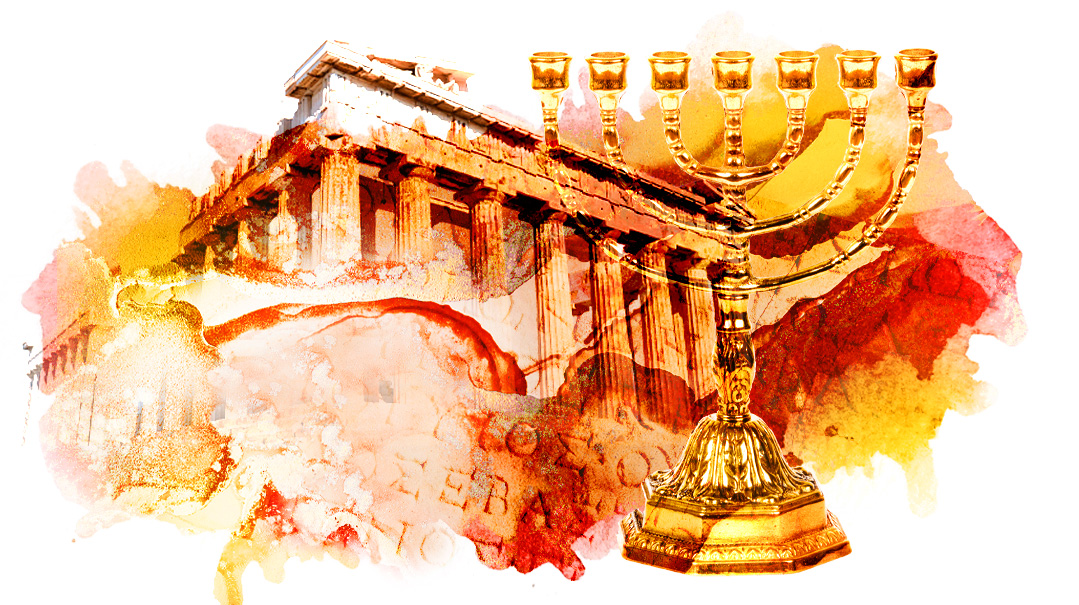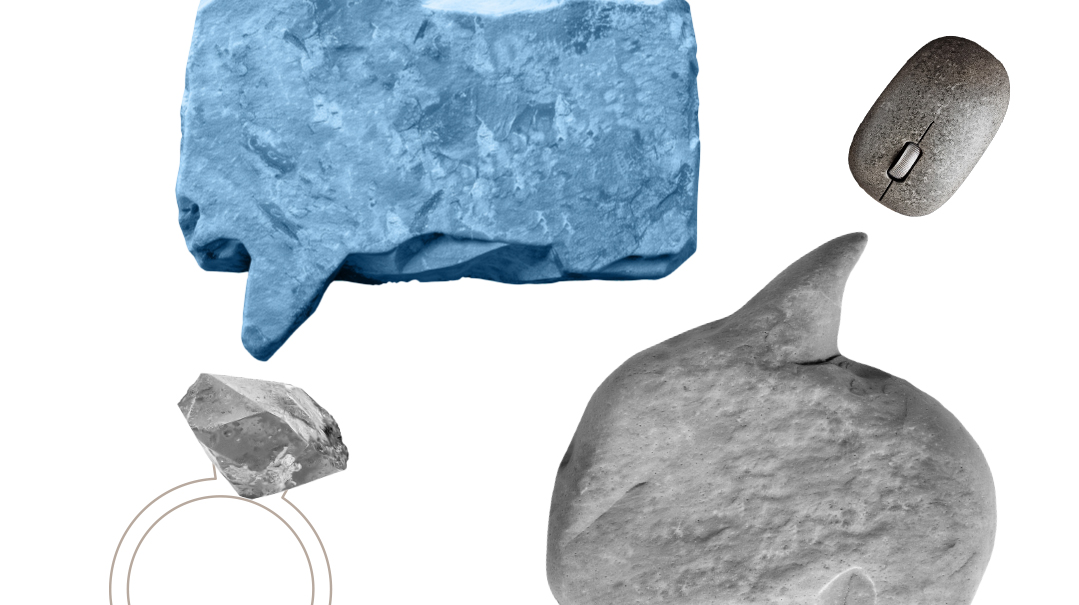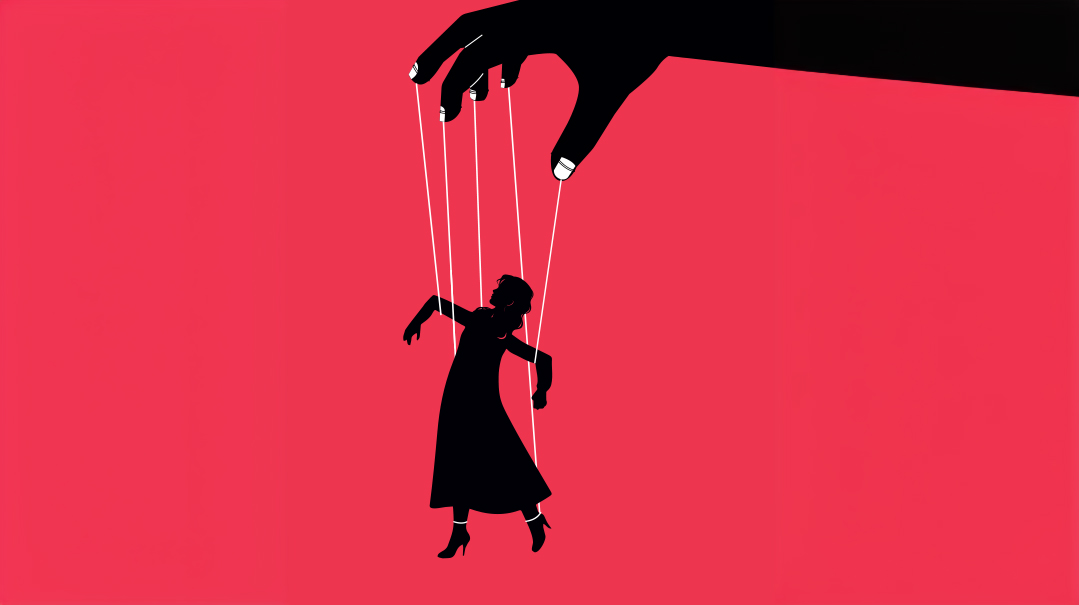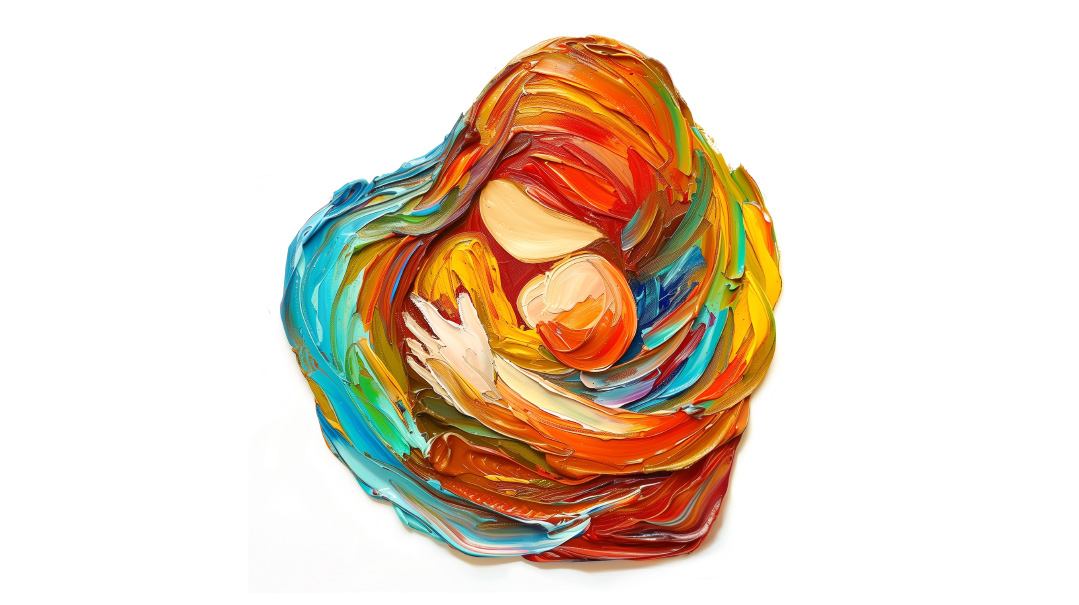Letters from Exile
| December 20, 2022In the face of persecution, they found the strength to cling to their faith, defying the decrees of the Greeks. A turbulent, painful, and moving account from Jerusalem

Hello, Miriam,
I hope you and your family are doing well in Alexandria. Forgive me for skipping the pleasantries, but I simply must tell you what’s going on here, in Eretz HaKodesh.
As you know, Alexander the Great ruled the whole world in his time. There has been no leader like him since, especially once the Greek Empire was split into four, which greatly weakened it. But the new emperor of Greece, Antiochus, is following in the path of Alexander. They say he is young and ambitious, cruel and devious, and that he has decided to conquer the whole world.
Fifty-two nations have already fallen into his hands. He conquered their lands, imprisoned their warriors, and burned down their houses of idol worship. And still, he forges ahead….
You are probably laughing to yourself and wondering why I care. But my fears are not far-fetched. Such rulers have always been bad for us. Remember what Abba used to say — HaKadosh Baruch Hu doesn’t allow Am Yisrael to fall into the hands of a weak nation. Still, I pray that Antiochus’s success is just the pride that precedes his downfall.
Aside from that, all are in good health.
Take care of yourself,
Rachel, a daughter of Shevet Levi
Dearest Miriam,
That which I most feared has happened.
My dear husband returned from the Mikdash and related that the Kohanim say that Antiochus has convened his ministers and told them that the Jews are waiting for the day that his kingdom will fall, and that we pray that our G-d should rule very soon, and therefore, it is fitting to destroy us.
May Hashem protect us and save us!
Rachel, a daughter of Shevet Levi
Miriam,
Today, a Greek messenger arrived and gave me a message on a parchment scroll stating that the Jews are not allowed to perform bris milah, keep Shabbos, or bless the new month.
Even before I managed to react, he galloped away. The entire Leviim colony was in an uproar. My husband explained to me that Yamim Tovim are included in Rosh Chodesh, which means we will not be able to celebrate Succos normally next week.
My husband also says that the Yarchei Kallah that take place each Rosh Chodesh are now cancelled.
When the children and grandchildren came over with some friends in the afternoon, I saw the fury in their eyes.
“Who revealed to Antiochus the principles of the bris?” Aharon demanded.
“It was probably the meshumad, Titni ben Pachas,” Yehudah told him. Yehudah is the son of Mattisyahu the Kohein. He explained that the traitor instructed the Greeks to defile the soil in the Mikdash because there is one mitzvah that, if not fulfilled, will cause the Jewish people to be lost from the world — and that is kindling the ner of the menorah.
That just got Aharon angrier. “These decrees make no sense. Why didn’t the Greeks ask for money or taxes?” He pounded his fist on the table. “Their real goal is to nullify the Torah. They realized that they will not be able to get us to stop performing all 613 mitzvos, so they chose the basic mitzvos, without which the Divine protection will be removed from Am Yisrael. Shabbos affirms all the principles of our faith, and milah nullifies the power of desire and helps purify the soul.”
I’m telling you, Miriam, I feel like Haman is rising up against us again. But unlike the evil Haman, Antiochus is after our souls, not our bodies. But he will never succeed. There’s no chance.
I, Rachel, a daughter of Shevet Levi, mother of six Kohanim and grandmother to many young future Kohanim, will not fulfill these decrees — no matter what!
Please, convene the Jews of Alexandria and pray for us!
Rachel
Miriam,
I have been sitting in one place for hours, distraught and weeping.
Last Thursday, the children came over. First, they spoke to my husband. I saw the looks on their faces, somber and pained. Then they approached me. They told me that they could not continue living with the Greek decrees and had decided to join a group of Jews who are moving to the caves near Jerusalem. “There we can learn Torah and keep Shabbos,” they explained.
I wanted to go with them, but they did not allow me to. After all, I’m not young, and my health is not great….
I pleaded with them to return every so often to tell me that they are doing all right.
On Monday, David came, his face pale and grieved; he was covered in dust from traveling.
As soon as I opened the door and saw him, I began to scream. “What happened? Tell me!”
David came in and sat down on the floor. When I saw that, I started to cry. “Speak to me, my dear! Tell me what happened!”
David told me that someone had informed the Greeks that there were people living in a cave nearby to theirs. There were a thousand people there — men, women, and children. “A thousand tzaddikim!” David sobbed.
The Greeks came on Shabbos morning, sat down at the entrance to the cave, and started to call out to the people inside: “Come out to us, eat and drink with us, be like us.”
The Jews, of course, refused to emerge. They said to each other, “Hashem commanded us at Har Sinai to work for six days and rest on the seventh. We will not desecrate Shabbos by fighting. We will spend Shabbos here, no matter what!”
The Greeks warned the Jews in the cave that they would kill them if they did not emerge, but the Jews replied that they were not afraid to be killed physically — spiritual death was much worse!
When the Greeks heard this, they brought logs, placed them at the entrance of the cave, and set them on fire. “The thick smoke filled the cave and killed them all,” David concluded, choking on his tears. “Entire families perished al kiddush Hashem.”
I was silent. What could I say? I never imagined a day when my son would tell me about such horrors.
But one thing bothered me. I asked David why they didn’t fight back. There were so many of them!
David raised his head with pride. “They were descendants of Levi! From our shevet! They refused to look for any heterim — leniencies. They refused to even put a stone at the mouth of the cave, because a stone is muktzeh on Shabbos. At a time of shmad, every mitzvah is yehareg v’al yaavor.” Then he added, “True, Mattisyahu ruled today that the right thing to do is to fight, because it is pikuach nefesh, but they are Leviim! These are our pride!”
David stood up and opened the door. “Ima, there’s a new decree. Jews are not allowed to put a lock or a door on their homes. I will send my son Yehoshua to take apart your door.”
I was shocked. “But what about modesty? Privacy? The minimum dignity for a human being?”
David just sighed and left the house.
Hoping for yeshuos soon,
Rachel
To my dear sister,
As if the decrees I wrote to you about were not enough, when the Greeks saw that we are not heeding their rules, they imposed additional, more severe decrees.
First, they demanded that anyone who has a bull or a lamb must write on its horns, “Ein lanu chelek b’Elokei Yisrael,” chalilah. We immediately sold our bulls and our sheep, of course. We don’t have meat, or milk, or wool, nor do we have animals to ride. But it makes no difference! We will never write such words of heresy and chillul Hashem!
The Greeks also forbade any mention of Sheim Shamayim, and ordered us to eat pig and perform avodah zarah. They forbade us to engage in Torah learning, and canceled Succos, and the lighting of the ner in the Beis Hamikdash. They also stopped the Korban Tamid of the morning and the evening.
Likewise, they made several decrees aimed at destroying the holiness and the purity of the Jewish family, and proclaimed that one who writes a kesubah for his wife will have his fingers torn off.
Don’t think for a moment that we are afraid of them. On the contrary! Everyone gave up their livestock for the same reason we did; you have to see Am Yisrael walking from place to place, announcing with each step that they are loyal to Hashem and His Torah. We are seeing open miracles — Hashem is bringing deer, gazelles, and kosher birds to our homes. They come right into the kitchen, because there are no doors…. In each house, people began to dig, and miraculously, we have found springs of water that are kosher for immersion!
Jews are a nation of problem solvers. We have come up with all kinds of interesting ways to observe the mitzvos.
Anyone who has a son born to him and wants to inform others of the bris puts a new candle in his window. Passersby see the candle, come inside secretly, and join the bris. And when they want to marry, the family goes up to the roof and grinds with grinders that make a lot of noise. That’s how passersby know there is a kallah there, and they come in and bless the chassan and kallah.
But not everything can be done with such tactics. Because of their decrees relating to family life, there are hardly any engagements. Behold, my three granddaughters, at whose weddings I had prayed to dance at this year, remain unmarried in their parents’ homes….
Wishing for miracles,
Rachel
13 Adar
Woe is me, that I do not bear good news.
Sit down before you read this, Miriam. You are not young, and these events will cause you much emotion.
Antiochus sent his viceroy Nikanor (the one who sits on the left of the king, he is of lesser status than Bagris, who sits on the right) to the Land of Yehudah. He came with a large army, tens of thousands of fighters, charged toward Jerusalem, and invaded the Mikdash. Yaakov, my oldest son, was there at the time. He sobbed uncontrollably as he told me that Nikanor didn’t hesitate for a moment, and killed anyone who was standing next to him. Men, women, and children — all innocent!
He burst into the Ezras Kohanim and ordered the Kohanim to gather around him. Yaakov was frightened, and he stood up and waited. But he did not expect such horrors. Nikanor produced a pig and slaughtered it in the Azarah. The pig’s blood spurted and spilled and defiled the pure floor. Yaakov told me that he had to forcibly hold back the Kohanim, who wanted to kill the fiend.
That is not all. Each day, Nikanor waves his hand toward Jerusalem and taunts, “When will you fall into my hands and I will destroy this tower?”
I am telling you things that no one knows! Yochanan the Kohein’s wife told me that when this was told to Yochanan, the son of Mattisyahu, our cousin, he was filled with visible rage.
He prepared a small sword, an amah in length, and hid it beneath the Bigdei Kehunah. Then he set out for the Beis Hamikdash. When he arrived, he identified himself to the gatekeepers and demanded to be brought before Nikanor.
The guards ran to Nikanor and informed him that the Kohein Gadol was standing at the entrance.
“Let him come,” Nikanor said.
When Yochanan stood in front of the disgusting creature, Nikanor said to him, “You are one of the Jewish rebels. I can kill you!”
Yochanan focused his heart and mind on Shamayim and answered, “I am here to do Your will.” Nikanor thought he was talking to him, while Yochanan was directing his words to the Creator.
But Nikanor was still suspicious. He said, “If so, take a pig and slaughter it on the bamah. Then, wear the Bigdei Kehunah and ride on the king’s horse. Then everyone will know that you love the kingdom of Greece.”
Yochanan replied, “I will do that, but I am afraid that Bnei Yisrael will stone me. Please, take all the people out of the room so that they should not tell the nation. Only you will see me slaughter the pig, because I love you.”
Nikanor instructed everyone else to leave. When his advisors and ministers had left the room, Yochanan raised his gaze Heavenward and offered a fervent tefillah: “Hashem, the G-d of my ancestors Avraham, Yitzchak, and Yaakov, do not submit me to the hands of this gentile, because if he will kill me, he will go and boast in the house of his god, and he will say that his god put me in his hands.” Yochanan finished the tefillah and took three steps forward. With each step, he asked for the merit of each of the three Avos.
Then he stabbed Nikanor in the heart.
Yochanan opened the door, and in the face of the panicked Greeks, he tossed the body into the Ezras Hakodesh and thundered, “Elokai! Do not consider it a sin that I killed him in the Kodesh. Now please give into my hands all the nations that have come with him to persecute Yehudah and Yerushalayim.”
As soon as he finished his short tefillah, Yochanan attacked the Greeks. There was a great tumult, and the enemies began slaughtering one another. At the end of the day, 770,000 dead were counted. When Yochanan returned from the fighting, he built a pillar and etched in it the words, “Maccabi meimis hachazakim.”
My husband explained to me that this is not a random choice of words. Maccabi is numerically equivalent (in the gematria melei’ah) to taryag — 613. Yochanan’s intension with this word was to publicize the Torah and mitzvos, and to counter the words of heresy that the Greeks forced us to put on the horns of our bulls. And what did they do to the evil Nikanor? I heard that they cut his head open and chopped off his thumbs and big toes, and hung him in Jerusalem, and wrote, “The mouth that spoke in pride and the hands that waved against Yehudah and Yerushalayim and on the Beis Hamikdash — this is the revenge upon them.”
Hoping to share good news,
Rachel
Miriam,
Antiochus was furious when he heard that Nikanor had been killed. He immediately ordered Bagris to go out and fight the war that Nikanor had started. He updated him about the decrees and sent him to Eretz Yisrael. I’m not young anymore, Miriam, but still, I have never seen so many troops. The roads to Jerusalem are black from the soldiers and elephants. My grandchildren told me that Bagris ordered all the nations under his control to come and fight alongside him.
Pray.
Rachel
Miriam,
On Erev Yom Kippur, the five sons of Mattisyahu went out to fight the Greeks. I’m writing this sentence and my hand is trembling. What do Kohanim know about swords? How will the feet that tread delicately in the House of Hashem now hike the terrain between mountains and valleys?
The next day, on Yom Kippur, Yochanan Kohein Gadol — the son of Mattisyahu — entered the Kodesh Hakodoshim, and there he heard a voice informing him that his brothers were prevailing over the Greeks.
There is no doubt that this is the war of the spirit against the physical and material. There is no reasonable chance for the Maccabim to win. Only Hashem will win this war for them.
I asked Yaakov how one is allowed to go out to fight a war that seems lost from the start — five Kohanim against an international force of hundreds of thousands of soldiers. Yaakov explained to me that the children of Mattisyahu are following in the footsteps of our father — Levi — who was moser nefesh for his sister, Dina, and set out to kill Shechem. They are also going out to fight for the sanctity of the Jewish girls — and for the spiritual future of the entire nation! And aside from that, Yaakov added, it says that tzaddikim gemurim are allowed to rely on a miracle.
The fighting has begun, and miraculously, Yehudah and Shimon each killed 127,000 enemy soldiers. The other brothers also killed tens of thousands. Don’t forget, Miriam, that it is only the five of them fighting. The rest of the nation is under siege in Jerusalem. I heard people saying that 200 young Kohanim joined the Maccabis later.
Rachel
Dear Miriam,
When I went out to the market today, I passed by the wall and saw something dreadful. I can’t get the images out of my mind.
Do you remember Esther, the widow of Yechiel? A week ago, she gave birth to a boy. You are surely murmuring “mazel tov,” but don’t — it’s not mazel and it’s not good.
On the day of the bris, Esther refused to capitulate to the craziness of the authorities. She did not want to celebrate her son’s bris in hiding. “A son was born to the family of Kohanim and it is fitting to celebrate it in public!” she insisted.
Some tried to dissuade her, but she was firm. “Shevet Levi was moser nefesh for milah in the desert. I will also be moser nefesh for it.” Then she added that the child, orphaned of his father, should have the happiest bris celebration. On the morning of the eighth day, the dozens of invited guests celebrated the bris with drums and cymbals.
Inevitably, the Greek troops arrived. The new mother hurried with her circumcised son to the walls of the city, climbed up with her last bit of strength, and shouted: “Evil Bagris, you think that you are going to nullify the covenant that Hashem forged with us? We will never cancel the bris of our forebears! Shabbos, Rosh Chodesh, and milah will never be taken from us!”
The Greek soldiers waited at the bottom of the wall, ready to capture her and force her to renounce her religion, and convert. But instead of descending, Esther dropped her eight-day-old son to the ground and hurled herself off after him. Mother and baby both perished.
I wish this was a unique case. There isn’t a day that goes by without a bris in the morning and a pain-filled levayah in the afternoon. It is not suicide; in this time of shmad, we are required to be moser nefesh for anything that is holy, not only the three yehareg v’al yaavor.
As I sit here and write, my son Naftali has just come in. He says that the Greeks found his neighbor, who had circumcised his son in the morning. They took the father and mother and hanged them from the wall, and in front of their eyes, they hanged the eight-day-old baby.
Woe is to us, woe….
Rachel
Hello, Miriam,
I received your letter yesterday, but I’m sorry to tell you that your joy is premature. Although the sons of Mattisyahu were able to expel Bagris, he fled to Antiochus and told him that the Jews in Eretz Yisrael are rebelling. He also told him that the five sons of Mattisyahu are stronger than lions and swifter than eagles. After all, it is not dignified for a fighter to be defeated by someone weak, so he has greatly glorified the reputation of the sons of Mattisyahu.
Of course, it is all a lie. They are not strong at all. Although their nature is strong, their bodies are weakened because they fast before going out to fight. And in general, they are weak in resources — they don’t have money, horses, or weapons. In fact, when they go out to battle, they don’t have any weapons aside from their cries. The sons of Mattisyahu start their battles with tremendous roars that frighten their enemies.
Bagris advised Antiochus to bring to Eretz Yisrael all the fighters of the 70 nations of the world. He warned him that otherwise, he would be shamed when the world would see his downfall. Antiochus believed him. He summoned 60 kings from the children of Eisav and 80 princes from the children of Yishmael. Eighty thousand ribo (10,000) battalions arrived! He gave each battalion elephants wearing armor. Upon each elephant they built a little box of wood, where six to ten fighters can ride.
Miriam, my dear, the sight of soldiers marching all over the land sows terror in my heart. What will be with us? What chance do we have when facing them?
Rachel
Miriam,
Yesterday, the children of Mattisyahu declared a fast.
Before Bagris’s army arrived, Mattisyahu and his sons traveled to Mitpzeh Gilad. Do you remember that place? It’s a place where Am Yisrael would pray, and then see salvation. It’s where Shmuel Hanavi was saved — and he was also from Shevet Levi. Mattisyahu and his sons went there because they believed that He Who answered Shmuel would answer them. They sat with ash on their heads and prayed for rachamim.
Tomorrow, the Maccabim are going out to fight the Greeks again.
After the tefillah of the tzibbur, Mattisyahu turned to his son Yehudah and said, “Yehudah, you are like Yehudah ben Yaakov, who is compared to a lion. And just like Nachshon of Shevet Yehudah dared to jump into the water, so, too, you will be the first in battle.”
Then he turned to Shimon. “Shimon, you are like Shimon ben Yaakov, who killed the residents of Shechem who sinned with his sister, Dina.”
He continued addressing each of his sons in turn. “Yochanan, you are like Avner ben Ner, the army general. Yonasan, you are like Yonasan ben Shaul, who killed the Pelishtim. Elazar, you are like Pinchas ben Elazar, who fought Hashem’s battle and saved Bnei Yisrael.”
Each of his five sons, who had spent all their lives doing the holy work of the Mikdash, stood up and took a spear. Five individuals facing an army of masses. Five weak scholars against weapons and elephants. One banner waved proudly, with just the word Maccabi on it — to remind them what they are fighting for and to guard them against impurity, brazenness, and boastfulness.
Five brothers, sons of one father. All subservient to their Father in Heaven. Going out to fight to the death for all that is dear and holy to them.
Offer a prayer for their success.
Rachel
Update:
Bagris has breached the wall of Jerusalem.
He cut off access to the city.
He went to the wall of the Mikdash and made 13 breaches in it.
He shattered the floor stones until they became dust.
Bagris is showing his strength and power. It is clear to him that no one can defeat him.
Update:
Miriam, tell your community that Yehudah, the son of Mattisyahu, has been killed, Hashem yikom damo.
Miriam,
When the sons of Mattisyahu saw that Yehudah, the strongest of them all, had been killed, they left the battlefield and returned to their homes. Mattisyahu — who was learning Torah and praying for their success — asked them why they had returned.
With grief, the brothers replied that Yehudah had been killed. “And he was as great as all of us together.”
Mattisyahu replied, “I will go with you and fight! Am Yisrael is at risk of being lost, and you are frightened to fight without your brother?”
How much emotional fortitude is needed at such a moment, when grief strikes and the pain is searing! And yet Mattisyahu took his sword in hand, and at his advanced age, went out to fight for the nation. For the future. For Kudsha Brich Hu.
Mattisyahu’s actions infused the fighters with courage, and that day they slew our enemies, and left not a single soldier alive. HaKadosh Baruch Hu in His compassion gave the mighty ones into the hands of Mattisyahu and his sons. There is no doubt that their strong emunah was a merit for them.
During the battle, Elazar ben Mattisyahu disappeared. Everyone knew that Elazar had a very unique battle strategy. He realized that the tremendous elephants gave the enemy a great advantage, and therefore, he would bravely walk to the legs of an elephant and stab its underbelly with a sword. The elephant would die, and the soldiers mounted on it would fall to their deaths.
When Elazar disappeared, they went to look for him among the dead in the Greek camp, but did not find him. Then they searched among the living in the camp of Yisrael, but still did not find him. In the end, he was found dead under an elephant.
I heard the women saying that Antiochus hired the services of a witch, and she cast an ayin hara on the sons of Mattisyahu. An ayin hara is what killed them, and not, chalilah, the Greeks.
Rachel
Update, 28 Shevat:
Bagris has been killed and his body burned.
Antiochus fled to his ship and set sail for Greece. Wherever he stopped, he was met with derision. The locals shouted insults at him, calling him a coward. He was so humiliated that he threw himself into the water and died.
Miriam,
There’s no need for me to tell you about the miracles and wonders we have seen! I am sure that word has reached you even in Egypt. I will just tell you that the Chashmonaim (that is the new name for the sons of Mattisyahu, a name whose acronym alludes to chodesh, Shabbos, milah, and the miracle of the neiros that they will fulfill) returned to the Beis Hamikdash and quickly rebuilt the broken gates and the breaches. On 3 Kislev, they removed the idols from the Azarah and purified the Azarah from the dead people and the impurities. They also fixed the gates and the walls of Har Habayis and Jerusalem that Bagris destroyed.
On 25 Kislev, they finished preparing the Mikdash for the avodah, and went to look for pure olive oil with which to kindle the menorah. But they couldn’t find a pure flask. Finally, a young Kohein found a small flask with the seal of Yehoyada HaKohein under the Mizbeiach. (It’s been there for a very long time. Yehoyada was a Kohein in the days of Shmuel!)
The oil in the flask burned for eight days!
You asked me in your letter why the Chashmonaim did not make these days a complete Yom Tov. The answer is because of the grief over Elazar and Yehudah, who perished in the war.
Rachel
Therefore, from that day, Bnei Yisrael throughout their exiles keep these days as days of rejoicing and feasting, from the 25th day of Kislev — for eight days. From that time until eternity they should not deviate from them, as it was in the Beis Hamikdash with the Kohanim and the Leviim and their Sages who fulfilled them, and for their children and descendants for eternity.
May Hashem Who performed the miracles and wonders, perform for us miracles and wonders, and we should see the fulfillment of the pasuk, “Kiyemei tzeischa mei’Eretz Mitzrayim er’enu niflaos.”
—Megillas Antiochus
(Originally featured in Family First, Issue 823)
Oops! We could not locate your form.







